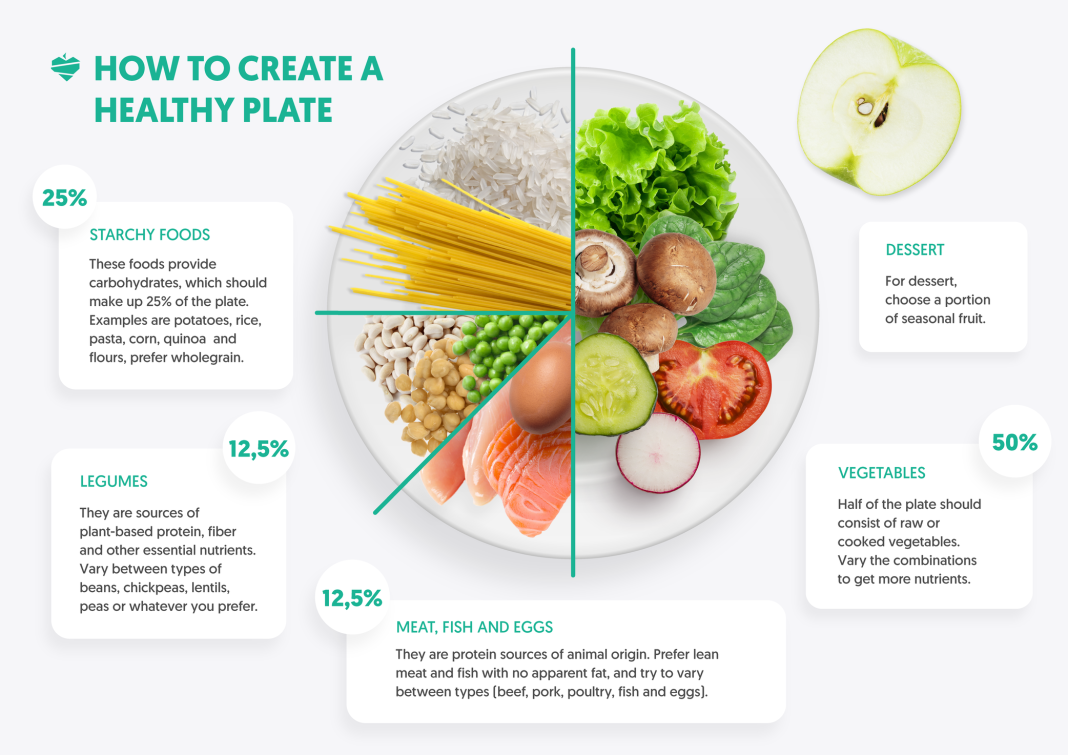The word “diet” often stirs up thoughts of restriction, weight loss, and cutting out favorite foods. But at its core, a diet simply refers to the food and drinks a person consumes regularly. It’s not about punishment or perfection—it’s about nourishment, balance, and long-term well-being.
In a world filled with fad diets, food trends, and conflicting nutrition advice, understanding what a healthy diet really means can be challenging. The truth is, there’s no one-size-fits-all approach. A successful diet is one that fits your lifestyle, supports your health goals, and is sustainable in the long run.
What Makes a Healthy Diet?
A healthy diet isn’t about extremes. It’s about consistency and variety. Here are some basic principles:
Balance: Include a mix of macronutrients—carbohydrates, proteins, and fats—in your meals. Each plays a vital role in your body’s function.
Whole Foods: Focus on whole, minimally processed foods like fruits, vegetables, whole grains, nuts, seeds, legumes, and lean proteins.
Hydration: Drinking enough water is essential for digestion, energy, and overall health. Avoid sugary drinks and limit alcohol.
Moderation: You don’t need to give up your favorite treats. Enjoy indulgent foods in moderation and try not to label foods as “good” or “bad.”
Types of Popular Diets
Many people explore specific diet plans to meet health, fitness, or ethical goals. Some of the most popular include:
Mediterranean Diet: Rich in olive oil, fish, fruits, vegetables, whole grains, and legumes. It’s known for promoting heart health and longevity.
Plant-Based Diet: Focuses on foods derived from plants, with minimal or no animal products. Great for reducing inflammation and supporting the environment.
Low-Carb Diets (e.g., Keto, Atkins): Emphasize protein and fats while limiting carbohydrates. Often used for weight loss or managing insulin sensitivity.
Intermittent Fasting: Involves cycling between eating and fasting periods. It can help regulate blood sugar and support weight management.
Gluten-Free Diet: Necessary for people with celiac disease or gluten sensitivity. Removes gluten, a protein found in wheat, barley, and rye.
Remember, any diet should be tailored to your unique health needs, lifestyle, and medical conditions. Consulting a registered dietitian or healthcare provider can help you choose the right path.
Diet Is More Than What You Eat
Your relationship with food is just as important as the food itself. Many people struggle with emotional eating, binge-restrict cycles, or guilt associated with eating. A healthy diet includes a healthy mindset. This means:
Listening to your body: Eat when you’re hungry, stop when you’re full.
Practicing mindful eating: Savor your meals without distraction.
Being flexible: Life happens. It’s okay to eat out, have dessert, or skip a meal once in a while.
Creating a Diet That Works for You
Sustainability is key. A diet that feels like a burden won’t last. Instead of overhauling your habits overnight, try small, gradual changes:
Swap soda for sparkling water or herbal tea.
Add one extra serving of vegetables to your day.
Choose whole-grain versions of bread and pasta.
Prepare more meals at home instead of eating out.
Conclusion
Diet is not about quick fixes—it’s about building a lifestyle that supports your health, energy, and happiness. By focusing on balance, variety, and a positive mindset, you can develop a diet that nourishes both your body and your life.
Forget the fads and focus on what makes you feel good. After all, eating well isn’t just about looking a certain way—it’s about living your best life, one bite at a time.













